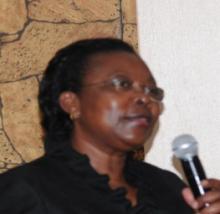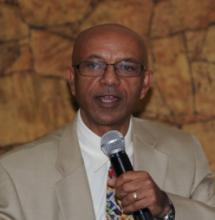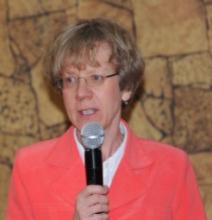UK supports Uganda to increase capacity for safe blood collection and provision
Kampala, 12th May 2014 - The United Nations Country Team in Uganda working through the World Health Organization is collaborating with Uganda Blood Transfusion Services (UBTS) to increase blood collection capacity and availability especially in Northern Uganda.
The project known as “SAVING LIVES OF MOTHERS AND CHILDREN” is implemented with financial support from DFID under the UN Joint Programme on Population. Under the project, tremendous improvements have been recorded throughout the country to the extent that in March, about 4,400 units of blood were collected in Arua, Gulu and Lira districts. However, at present, the challenge is sustaining these achievements including investment in human resources development, quality improvement systems, strengthened information management systems and supply of appropriate equipment to ensure quality services. It is for this that the UBTS convened a stakeholders’ meeting to share progress on the project and also explore potential partnerships to help sustain achievements made so far.
The Minister of State for Health (General Duties) Honourable Erioda Tumwesigye who was the guest of honour at the meeting appealed for support to “further improve the blood safety programme, particularly in the historically under- served north of the country where health services have struggled to access the population to meet demand”. He was particularly grateful to WHO, CDC, UNFPA, DFID and the Uganda Red Cross for the essential role they have played in ensuring supply of adequate safe blood in the country.
Currently, UBTS has 21 blood collection teams collecting over 200,000 units of blood each year. But this is still far below the WHO recommended target of 1% of the population to ensure adequate supply of blood to those in need.
Often lack of timely access to blood is a major cause of death in women suffering from bleeding due to pregnancy-related complications, children suffering from severe anaemia due to malaria, victims of trauma and accidents and patients suffering from chronic diseases. Therefore supplying sufficient quality-assured safe blood to these and others remains an issue of major concern in the health sector.
Consequently, in 1975, WHO Member States resolved to develop national blood transfusion services based on regular and voluntary non-remunerated blood donation. WHO was mandated to guide and support member states to develop national capacities.
For Africa, a Regional Strategy on Blood Safety was developed that calls for the establishment of safety norms, standards and a quality assurance for safe provision of blood. The strategy also advocates for allocation of adequate funds to develop the infrastructure of blood transfusion services as well as promotion of voluntary and benevolent blood donation on a regular and permanent basis. It further recommends mobilization of bilateral and multilateral partners as well as nongovernmental organizations to provide technical and financial
Speaking at the stakeholders meeting, the WHO Country Representative Dr Wondimagegnehu Alemu reaffirmed WHO’s commitment to work with MOH, UBTS and all partners to strengthen the blood transfusion services and overall quality of health care. “The Progress achieved thus far is encouraging and I would like to thank the people of the United Kingdom, who provided the funding for the project to save lives of mothers and children through DFID” he said.
_____________________________________________________________







